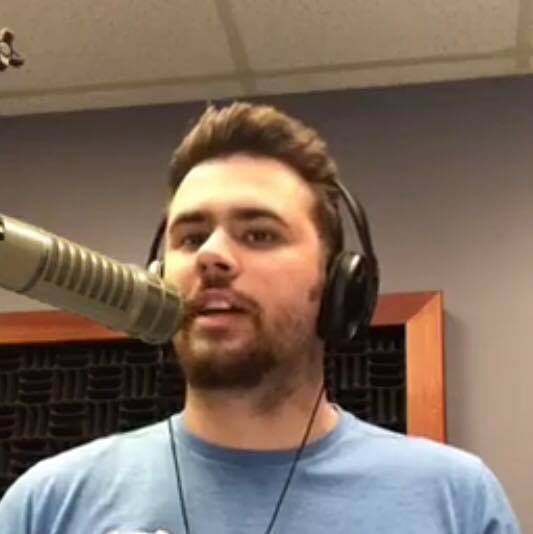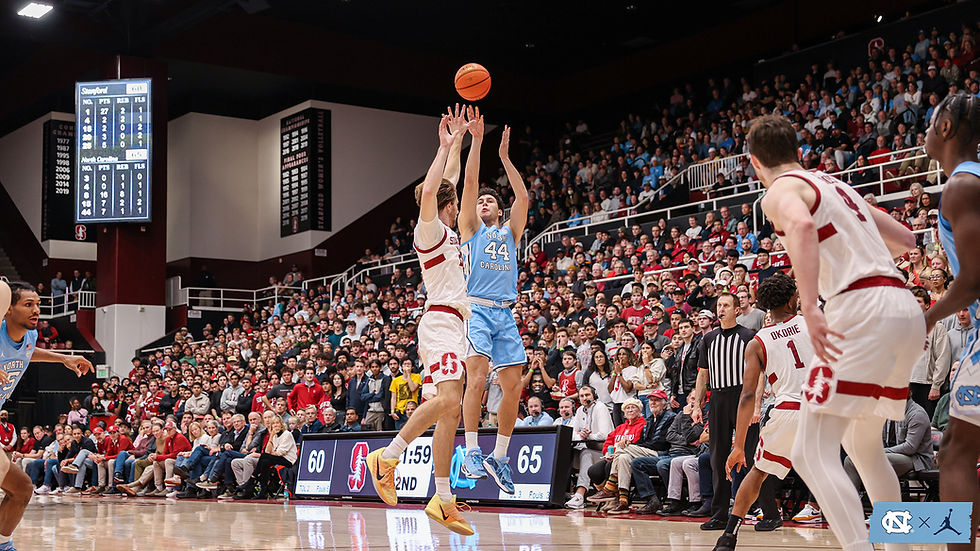Heel Tough Blog: #WeWanttoPlay Should Be a Resounding Message to AD's
- Anthony Pagnotta

- Aug 9, 2020
- 6 min read

#wewanttoplay. A simple hashtag, but one that means so much right now for a group of college athletes that are just wanting to play the sports they love this upcoming season. As many have stated, they understand the risk, but believe that right now, no matter if they are on a football field or not, their college campuses and being in their own team “bubbles” might be one of the safest places for them in COVID-19 America.
Many around college football began speaking out about their want to play the sport this fall after reports that the Big Ten was headmanning an effort to have all of the Power 5 conferences come together and cancel the fall college sports season. Many of college football’s top reporters believe that the possibilities for a fall season are “all but over” and that college football “could come to a complete stop in the next 72 hours”.
Among those jumping in to show their support to play are many Tar Heel players who have been participating in fall camp for the past four days. From record-setting sophomore starting quarterback Sam Howell to walk-on tight end Will Crowley, there has been plenty of support for the chance to play this fall from current Tar Heel players.
There were two players that stuck out to me on this and honestly made me rethink my position on this situation. The first was starting wide receiver Beau Corrales, a young man who has Type 1 diabetes and has said he will not opt out of the 2020 season. “I am fully aware of the risks of contracting Covid,” Corrales said in a post made on social media on Sunday evening. “However, those risks do not go away simply by dismissing a football season. Although I respect anyone’s decision to opt out of the 2020 season, there are still plenty of us that are healthy and taking the right precautions to make sure that a season is still plausible.” Powerful words from a guy who is one of the highest risk personnel around Tar Heel football at this time.
The other player whose support for the movement really stood out for me was Patrice Rene. Sadly, earlier this offseason, Rene lost an uncle to COVID-19, but that isn’t preventing him from being a supporter of the #wewanttoplay movement. “Not only do I want to play, I NEED to play,” Rene said in his own social media post on Sunday night. “This is it for me and a lot of other players who are in the same position as I am. Let’s find a way to make it happen!” For someone that has seen the rath that this pandemic has had, there is almost no one better to make a comment on whether or not this season should be played.
The point that Rene brings up is a great one. For guys like him that are entering their final season of eligibility, there is no guarantee that if the season is cancelled all together, there would be the chance to return next year, a difficult reality that many spring athletes across the country have already seen come true after their spring season was cut short this just a few months ago. For Rene, he is coming off an ACL injury after a phenomenal junior season back in 2018 that has NFL scouts confused about where to put him on their boards right now. For him and many others in his situation, a number that is much higher than many of you may realize, missing out on the 2020 season could damage or potentially even end their hopes of a professional career in the sport they love. Most of them, including Rene, are not ready to give up on that just yet.
The money aspect of losing a college football season is hard to ignore in all of this, as well. Football is easily the highest grossing sport on almost any college campus and not playing a season at all would deal a major blow to many athletic departments, likely causing all but a few to drop all non-revenue sports just to survive. While rebuilding those athletic departments is possible, it would take multiple years for power conference programs and even more for non-power programs to recover. Some Division II and Division III schools may never recover from the loss of revenue.
The problem is, the reason football is your biggest source of revenue at many schools is ticket sales, especially at non-Power 5 schools which lack the TV contract revenue that the power schools receive every year. Stadiums will not be able to even come close to packing the stands like they normally do, but the sport of NASCAR has shown you that certain limited capacities, especially if you were able to enforce strict guidelines and regulations inside of the stadiums and find ways to avoid large group contact for the most part, it is possible to have a percentage of the fans in these venues and at least receive some ticket revenue, something that could help many of these athletic departments hold on until the effects of COVID-19 can dissipate.
However, the concern for many, and rightfully so, is the health ramifications. The NCAA has done everything they possibly can to try and take extra precautions this season without those precautions causing problems of their own, such as the new helmet shields that now extend all the way down the facemask, but rightfully so there are still concerns. You are still talking about guys tackling, laying, breathing and sweating on each other for a three to four hour period without a bubble environment like the NBA or NHL has in place. While many programs have tried to build a bubble environment around their teams, there is no guarantee that it will work and as the MLB has already shown, staying disciplined and traveling city-to-city is a lot easier said than done.
I think former Tar Heel wide receiver Ryan Switzer said it best on Sunday is his own social media thread on the issue. “If universities can find a way to create a “bubble” like atmosphere I think there’s an opportunity to continue college football/other fall sports. It’s going to come down to what these schools are willing/able to spend on testing & other protocols to keep kids safe.” Switzer then pointed out that it is up to the students athletes to hold up their end of the bargain, as well. “It’s not so much that football is the biggest threat for contracting the virus. They’ve (players) got classes, some are in fraternities, attending church, eating at restaurants, etc. that pose the biggest risks.” Switzer also mentioned how even though many of the athletes might not be affected if they contract it, passing it on to older members of the staff could have much different effects. He is spot on. Just look at the Tar Heel staff which has five members of it’s staff that are 55 years of age or older and Jovan Dewitt, who has had a battle with throat cancer as recently as 2019. Like Switzer says, there is a way, but everyone around college football has to realize that many staffs throughout are similar to the Tar Heels and it’s their job to help protect these high risk members.
Unfortunately, the players’ push really doesn’t mean much in a sport where there is no players union. Each conference commissioner will ultimately make the decision that they feel is in the best interest for them. With talks of liability and shared revenue, though, there is a good chance that the commissioners will do what they can to avoid either of those situations, something that could result in the season not even being played in the spring.
My thinking on the situation is that if the players and the staff know the risks, see if they will sign a waiver saying just that and that they are still willing to play. There needs to be some flexibility on the liability issues from higher ups, as there needs to be some sort of help in place for players if they were to suffer major issues from COVID-19 while playing for the school. However, the players also need to release that receiving part of the revenue just doesn’t seem possible if they want all sports on campus to be maintained, something that was likely to be a big snag in the proposal that Pac-12 players had put forward a few weeks ago. If you could get these issues cleared and get those waivers signed, there is enough evidence that these players are in one of the safest environments that they can be in during this time to at the least attempt to play this season in some capacity whether in the fall or the spring. The thing we should all be able to agree on: if this college football season doesn’t happen at all, it would be a near-death blow to college athletics.
In the end, the players are the ones that will have to take the field this season. Since many seem to feel comfortable with the way their respective universities and football programs in particular are handling the situation, their opinions should be ones valued the most here. It doesn't matter what the fans or the media want. If the players feel safe enough to play, they should be able to play.








Comments